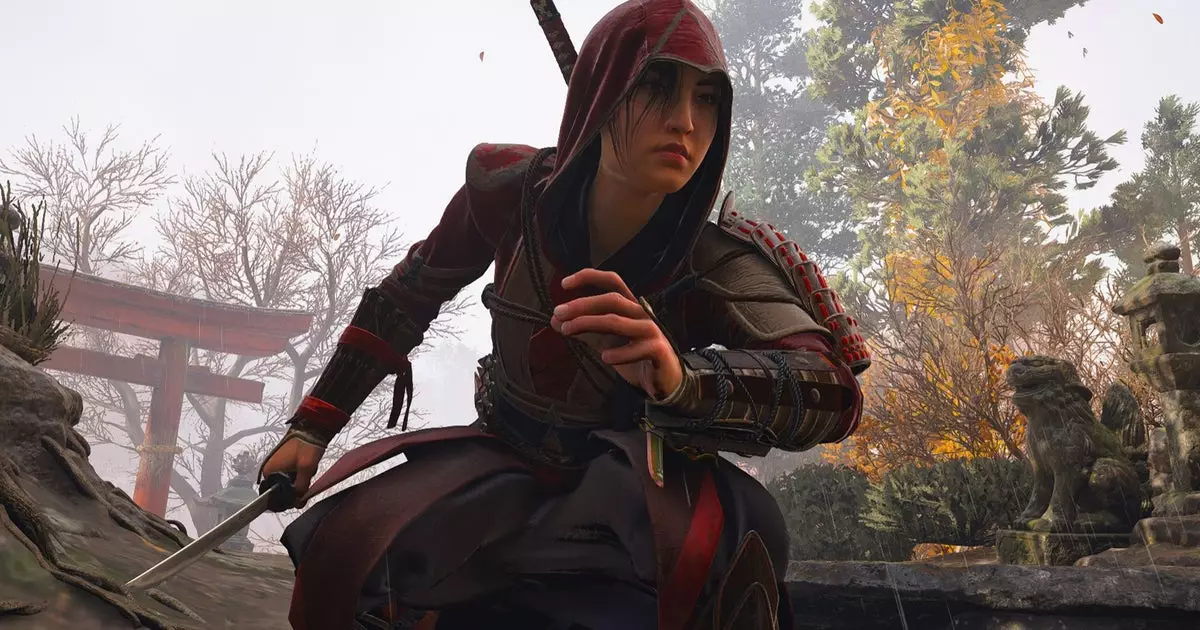Ubisoft, a titan in the gaming industry known for blockbuster franchises like Assassin’s Creed and Far Cry, finds itself at a pivotal crossroads. Following the release of Assassin’s Creed Shadows, which has reignited enthusiasm for the franchise, the company faces both monumental challenges and transformative opportunities. As CEO Yves Guillemot articulated, the return to glory of Assassin’s Creed seems to affirm the brand’s enduring power. However, this resurgence comes amid a wave of organizational restructuring and a strict mandate for cost reductions.
Facing the Storm
The past year has undoubtedly tested Ubisoft’s resolve. An intense industry landscape has led to mixed outcomes across its expansive portfolio. Guillemot’s acknowledgment of the company’s overall earnings being “slightly below objective” substantiates feelings of discord within a once-mighty company grappling with market pressures. The gaming industry is known for its volatility, where the rise of contenders and the shifting preferences of gamers can make or break a developer’s success overnight. Nevertheless, the direct recognition of challenges is a positive step toward accountability and a clear acknowledgment that change is essential.
The decision to reduce costs by around €100 million signifies a profound shift in company philosophy. It reflects a growing awareness that trimming excess isn’t merely about reducing workforce numbers but entails a broader strategy to streamline operations and tighten focus on core offerings. However, the layoff of approximately 3,000 employees raises questions about the moral ramifications of such drastic measures, particularly within a culture that once celebrated creativity and innovation.
Strategic Delays and Market Adaptations
One of the most striking adaptations in Ubisoft’s strategy is the deliberate postponement of several high-profile projects. The narrative here suggests that management is prioritizing quality over speed, opting to enhance player experience rather than rush titles to market. Such decisions—while necessary—raise concerns about the future of the company’s release schedule. Will the trade-off between extensive development time and a historically packed lineup lead to diminished financial returns in the interim?
Though critics may view these delays as an indication of complacency or inability to execute, the success of Assassin’s Creed Shadows paints a different picture—one of perseverance that focuses on delivering a rewarding narrative rather than succumbing to the pressures of a competitive release calendar. This shift reinforces the notion that the series is not just a brand but an evolving story that demands careful crafting and thoughtful development.
Financial Framework of the Future
The precarious tightrope that Ubisoft now walks involves balancing artistic creativity with fiscal prudence. As the company moves to cement its strategic partnership with Tencent, it’s clear that it seeks to leverage external resources to fuel its expansive vision while reducing financial strain. The promise of new organizational structures to oversee flagship franchises indicates an effort to consolidate expertise and streamline communication, thereby driving efficiencies. This proactive approach in the face of financial adversity reveals a commitment to maintain the quality that fans expect while carving pathways toward sustainable growth.
Moreover, the focus on “open world adventures” and “GaaS-native experiences” suggests Ubisoft is aware of current gaming trends. With audiences ever-hungry for immersive worlds and engaging live service elements, it seems they are keen to stay relevant. Still, the question remains: can they effectively merge these two motifs without undermining the richness of the narrative experiences that first endeared players to their titles?
A Culture of Accountability
While it’s easy to fixate on external consequences like job cuts, it is vital to scrutinize the broader culture of accountability within Ubisoft. Guillemot has previously taken pay cuts amidst company performance losses, illustrating a level of transparency that is essential in today’s corporate climate. Such actions can foster trust among staff and stakeholders alike. However, observers must remain vigilant that this ethos of accountability extends beyond leadership into the ranks of development teams, ensuring that every employee shares in the drive for excellence and innovation.
Ubisoft’s path forward is fraught with both peril and promise. Their ability to navigate these turbulent waters, while remaining loyal to their creative core, will ultimately determine their standing in an ever-evolving industry where adaptability is not just advantageous—it is essential. The lessons gleaned from this tumultuous phase could either bolster Ubisoft’s legacy or signal the beginning of a deeper existential crisis.


Leave a Reply